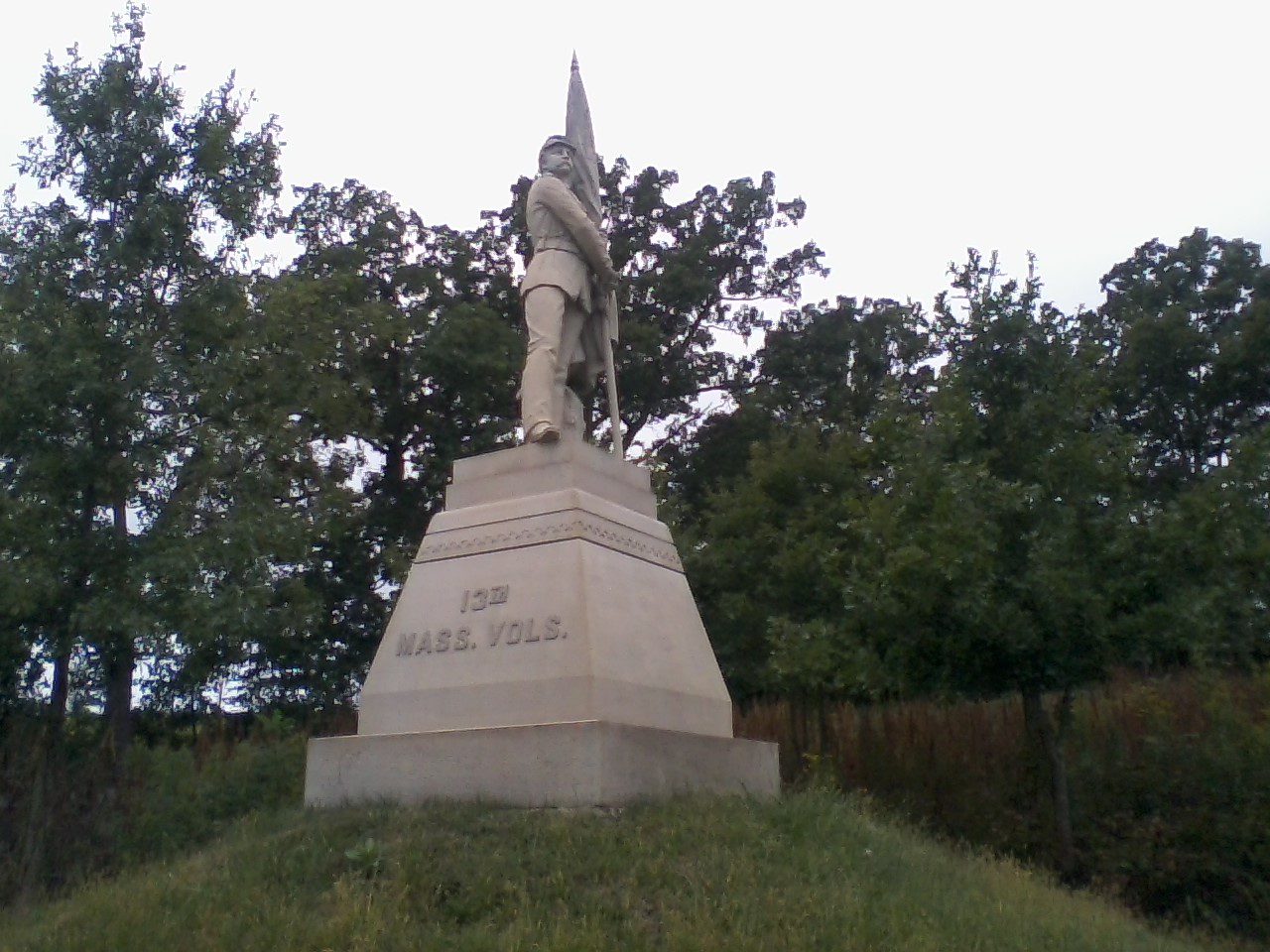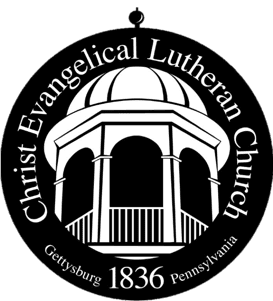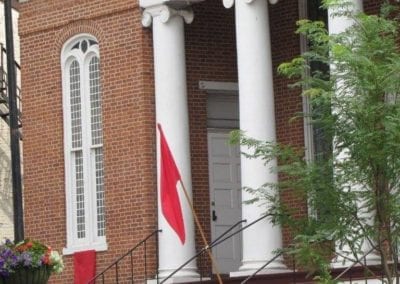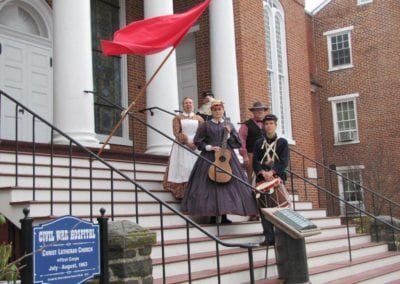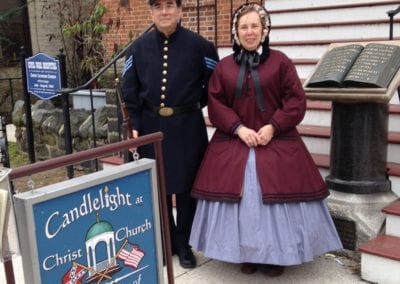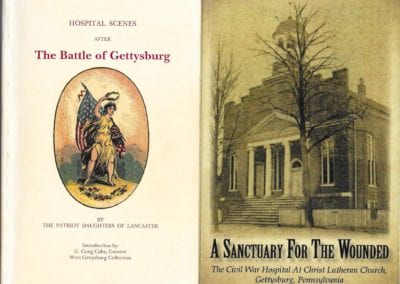Songs and Stories of a Civil War Hospital
The live performance, Songs and Stories of a Civil War Hospital, shares the authentic history of how Christ Lutheran Church was used as a Civil War hospital during and after the Battle of Gettysburg. A typical Songs and Stories evening begins at 7:30 p.m. with music on the front church steps (weather permitting) followed by the main program in the historic church at 8:00 p.m. in the same sanctuary that served as a sanctuary for the wounded.
Each performance includes the sharing of first personal accounts from soldiers and nurses about Christ Lutheran hospital, Civil War poetry by Walt Whitman (himself a Civil War nurse), passages from Abraham Lincoln’s Second Inaugural Address, and Civil War–era music by well-known local musicians. In addition, the historical program offers a brief church history of Christ Lutheran leading up to the battle; chronicles a local citizen’s escape into the church’s bell tower; and details the accounts of Chaplain Horatio Howell’s death. Howell was shot and killed on the front steps of the church on July 1, 1863.
Originally known as Candlelight at Christ, the program began in 1999. We are currently having only a few special performances throughout the year. Since its inception, more than 20,000 people have attended the program. Stay tuned for 2026 dates!
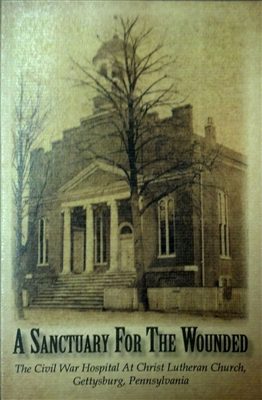
A Sanctuary for the Wounded
Follow along with A Sanctuary for the Wounded: The Civil War Hospital at Christ Lutheran Church, Gettysburg
Adams County Historical Society Giftshop
Christ Lutheran Church was used as a hospital during and after The Battle of Gettysburg, July 1863. This published book tells some of the stories of the courage and sacrifices of the people who were at the hospital. Also sale at the performances for $10.
To purchase a CD of the Songs and Stories program contact the Adams County Historical Society giftshop.
Stories of a Civil War Hospital
Immediately after fighting began northwest of Gettysburg early on July 1, 1863, Union officers designated Christ Lutheran as a hospital, and it served as an active hospital until August 15, 1863.
Although officially a Union hospital, during the Battle and for several days thereafter, it treated Confederate soldiers also. At its peak, the Christ Lutheran hospital accommodated about 150 wounded soldiers. By August 3, 1863, it still had 78 patients.
Mary McAllister, a neighbor who helped open and establish Christ Lutheran Church as a hospital, recalled that first day: “Every pew was full; some sitting, some lying, some leaning on others.”
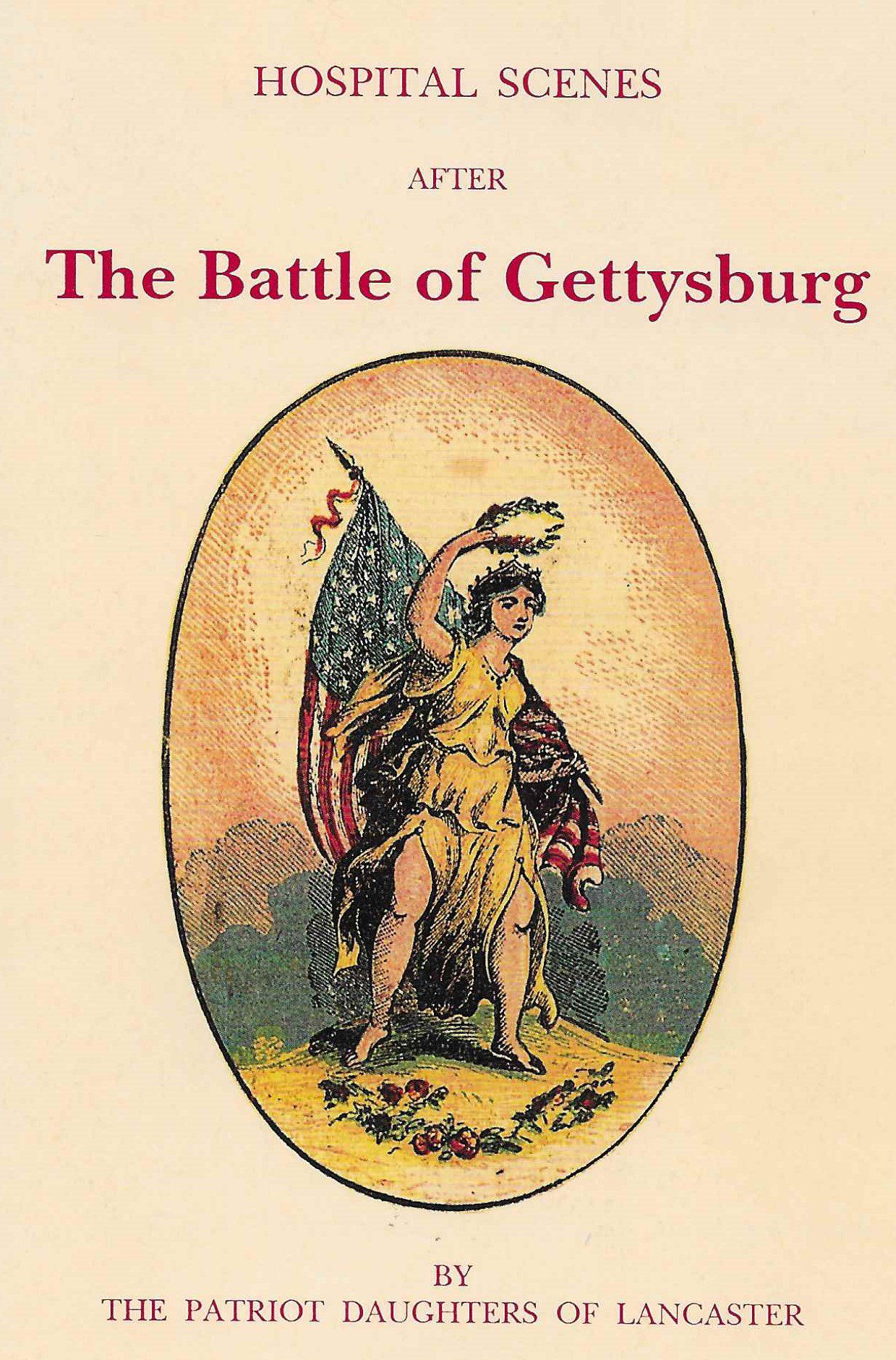
“Let it ever be said to the honor of the good people of Penn., that they never withheld anything from the soldiers that was for their general good. From the earliest to the latest day, they were the same loyal, generous people. A Massachusetts soldier never wanted for anything they could give.” Three Years With Company K; Sgt. Austin C. Stearns, Co. K, 13th Mass. Infantry – and a patient at Christ Lutheran hospital July 1-3, 1863.
The following are passages from Gregory Coco’s book, “A Vast Sea of Misery:”
“One of the most aesthetically pleasing and stately public buildings anywhere in the Gettysburg area, is this church, located on the south side of Chambersburg Street. It may be the only church in the town that outwardly appears as it did in July of 1863. Adams County is fortunate to have it standing mostly unchanged. …This was probably the first public building in the town of Gettysburg to be commandeered as a hospital by Union soldiers.
“…Charles McCurdy recalled: ‘Two doors below our house, the College Lutheran Church was filled with the wounded. The auditorium of the church was on the second floor and the wounded had to be carried up a long flight of stairs from the street. Surgeons were at work under very rude conditions. …The Church yard was strewn with arms and legs that had been amputated and thrown out the windows…'”
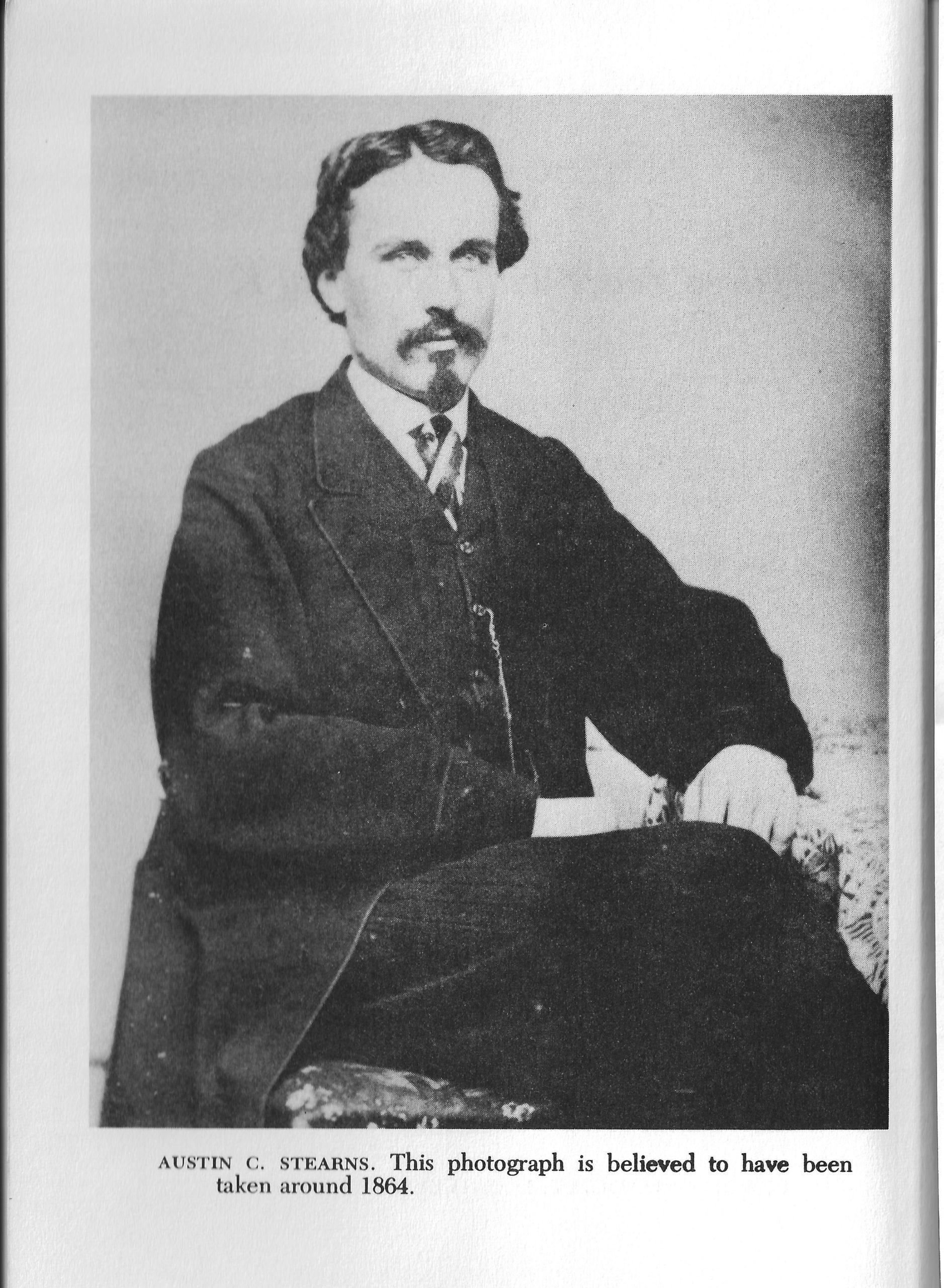
“Melvin Walker, 13th Massachusetts Infantry, pinpointed where these operations were performed: ‘I was taken to a large church on Chambersburg Street where our division hospital had been established on the ground floor. The large vestry was fast filling… An operating table was placed in an anteroom off the Main hall and here our surgeon worked with knife and saw without rest or sleep, almost without food, for 36 hours before the first round had been made…
After the surgeon’s work was done, we had no care save such as a few less seriously wounded comrades could give… The first night 23 dead were carried from our room….'”
In her book, “Letters of a Civil War Nurse,” Henrietta Jacquette quotes one of her letters from Gettysburg, dated July 7, 1863: “…I would get on first rate if they would not ask me to write to their wives; that I cannot do without crying…. ” For further information about this hospital and some video clips see: “The Stories”
